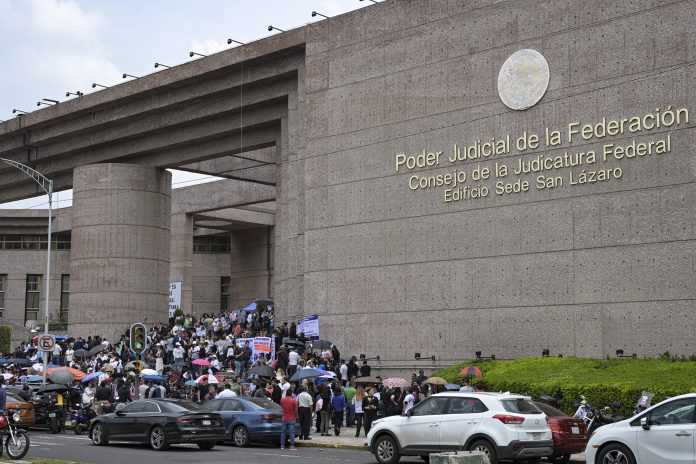The National Association of Magistrates and Judges of the Federal Judiciary of Mexico announced the start of a nationwide strike from Monday against the judicial reforms launched by the country’s authorities.
The reforms will allow anyone with a law degree and several years of experience to be elected as a judge. The protesters considered this a threat to working conditions and career advancement. Mexico’s president, on the other hand, believes that the country’s judicial system is corrupt and supports criminals, so reforms are necessary.
Markets were alarmed by the proposals amid concerns that the changes could erode checks and balances on presidential power and lead to a political takeover of the judiciary.
On Tuesday, outgoing President Andrés Manuel López Obrador called the strike “illegal” and suggested judges were corrupt, speaking at his usual morning press conference. He also said:
With all frankness and respect, I’d say to them that (the strike) might even help us because if the judges and magistrates and ministers are not working, at least we’ll have the guarantee they are not going to let criminals of organised crime go free.
The unions that went on strike Monday represent many of Mexico’s 55,000 judicial workers. They said the reform would end merit-based career advancement.
Protesters blocked the entrances to Mexico City’s courthouses with chains and plan to continue the strike until the president cancels the initiated amendments. The reform will be voted on by lawmakers in the newly elected Congress next month, when the leftist leader will be in his last month in office.
Former Supreme Court Justice Arturo Zaldivar blamed the strike on poor leadership by Chief Justice Norma Piña, who has often clashed with the president.
The leader of the Morena party in the lower house of Congress last week detailed a proposal for a phased reform: all Supreme Court justices would be elected next year, as well as half of all justices of the peace. The others would be elected in 2027.
